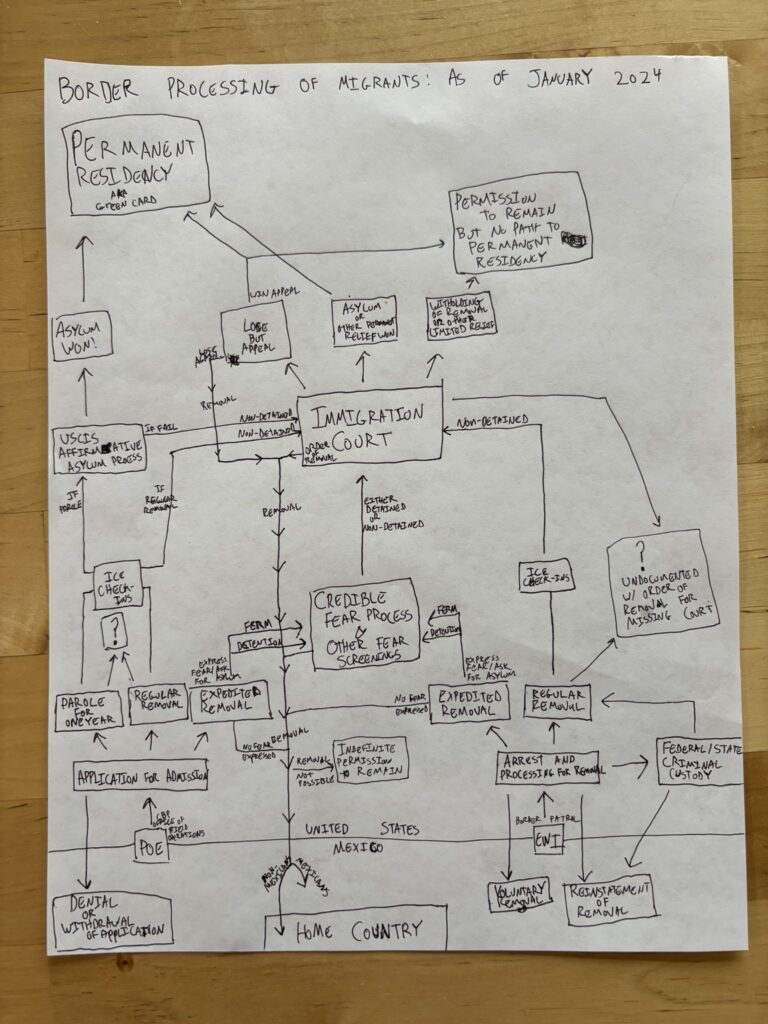Is It Illegal To Cross the United States Border Between Ports-of-Entry?
As the media continues to cover "unlawful" crossings, it is important to understand what this really means. Migrants cross the Rio Grande and entered the U.S. from Mexico, Thursday, Oct. 19, 2023, in Eagle Pass, Texas. (AP Photo/Eric Gay)
This is Part of the "At the Border in 2024" Dig series
Migrants cross the Rio Grande and entered the U.S. from Mexico, Thursday, Oct. 19, 2023, in Eagle Pass, Texas. (AP Photo/Eric Gay)
This is Part of the "At the Border in 2024" Dig series
As thousands of asylum-seekers have crossed the border at points other than official ports every day over the past few years, this legal question holds weight and complexity. With ubiquitous references in newspapers and on TV to “illegal” or “unlawful” crossings, what does this really mean?
Technically, it is a misdemeanor offense to cross the border between ports-of-entry, no matter one’s legal status, citizen, resident or other. This law is rarely enforced — the U.S. justice system simply does not have the gargantuan capacity necessary to process every misdemeanor trespassing offense.

Most people seeking asylum choose to enter the United States between ports, just crossing the river and standing by the wall until Border Patrol trucks arrive and they can turn themselves in, thereby breaking the law, albeit a very minor offense. Why? Because to wait months for an appointment on the CBP One app, which involves meeting Border Patrol agents at an official port, avoiding the misdemeanor, requires time and money most migrants do not possess. These asylum-seekers are thus breaking the law in order to enter the legal asylum process, acting against the law to access a legal right.
Now, the Texas government has passed a law that would require Texas state agents to enforce punishments for this misdemeanor crime along the Texas border, which would include jail time. This means arresting as many asylum-seekers as there is space in Texas jails. This new development would mean some migrants would have conflicting statuses with state and federal authorities. The law was blocked by a federal court, but the decision will likely be appealed to the Supreme Court.
Your support matters…Independent journalism is under threat and overshadowed by heavily funded mainstream media.
You can help level the playing field. Become a member.
Your tax-deductible contribution keeps us digging beneath the headlines to give you thought-provoking, investigative reporting and analysis that unearths what's really happening- without compromise.
Give today to support our courageous, independent journalists.


You need to be a supporter to comment.
There are currently no responses to this article.
Be the first to respond.